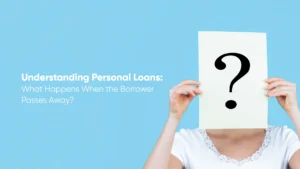What is CIBIL Defaulter List and How to Check Defaulter List?

Table of Contents
ToggleUnderstanding the CIBIL Defaulter List
CIBIL Defaulter list is like a financial report card that lenders use to evaluate your risk when it comes to repaying loans or credit card debts.
Banks and financial organisations use credit agencies to determine a borrower’s creditworthiness. CIBIL, or Credit Information Bureau India Limited, is a credit agency that keeps a list of defaulters provided by banks and NBFCs. There is no special defaulter list, but if you have previously failed to repay your personal loan or credit card, your CIBIL score gets affected. If you are refused any type of loan, it is possible you may have a low credit score though it doesn’t necessarily imply that your name is on the CIBIL defaulter list. This also acts as a warning sign for lenders to be careful. Lenders may view you as a risky borrower, which could prevent you from being approved for a credit card or loan. To demonstrate your responsible borrowing, you can always make your repayments on schedule and raise your creditworthiness.
Why is It Important to Check CIBIL Defaulter List?
Here’s why it’s important:
Financial Reputation: If your name appears on the CIBIL defaulters list, it gives a negative impression to lenders. Your ability to repay debts responsibly serves as a quick indicator of your creditworthiness. Having your credit report flagged as a defaulter might damage your credit and make it difficult to get good terms on new loans.
Loan Approval: Lenders regularly review loan applications and refer to the CIBIL Defaulter List. Based on this list, lenders may reject your application or might as well approve it but can charge higher interest rates on the loan amount. Lenders may be less willing to grant credit facilities due to your default history because they consider you to be a higher risk borrower.
Possibility for Improvement: There is still hope after finding your name on the list of defaulters. It offers a chance to settle any unpaid bills with lenders. You can work towards getting off the defaulter list and restoring your creditworthiness by being proactive in strengthening your financial standing.
In conclusion, keeping a clean financial record requires routinely reviewing the CIBIL Defaulter List.
How to Check CIBIL Defaulter List?
Here’s a step-by-step guide on how to check if you’re a defaulter in CIBIL. By following these simple pointers, you’ll get an overview of your credit status:
Visit the CIBIL Website: Visit the CIBIL website, your gateway to accessing important financial information.
Create Account: Create your user account and password. Add details such as your first and last name, date of birth, and your gender.
Check Your CIBIL score: To check your CIBIL score, select your Identity proof type. You can choose from your Income Tax ID number or PAN Card, Passport Number, Voter ID number, driving license number, or ration card number.
Add Your Details: Add your full address as per the tabs mentioned (city, state, Pin code, etc.), telephone number, and E-mail address.
You will also receive a one-time password or OTP on the mobile number you input in the account set-up form. You must enter the OTP to proceed to the next step.
Entering the OTP and submitting it will take you to a page where you can see your CIBIL or credit score report.
Ways to Remove Name from CIBIL Defaulter List
Below are effective strategies to clear your name from the defaulter list in CIBIL:
Maintain Good Credit Habits: To raise your CIBIL score and show your financial stability, you must build a strong credit history. Making paying bills on time, keeping credit card balances low, and avoiding excessive borrowing are your top priorities. By managing your credit carefully and consistently, you can gradually improve your credit score and minimize the harm that past defaults have done to your financial profile.
Clear Outstanding Dues: Try to settle all unpaid bills on schedule. To increase trust, try to keep a positive relationship with lenders. After the debt is settled, you can recheck your credit score to see if it has changed for the better. You can demonstrate to lenders that you are a responsible borrower who is dedicated to making payments on schedule by paying off all existing debt.
Do not apply for multiple loans: Applying for numerous loans and credit cards in a short span leads to too many credit inquiries. This can negatively impact on your credit score. Try paying off your outstanding debt on schedule. This will raise your credit score, and if your credit history is clean, you can always choose to apply for new credit cards and loans in the future and lenders will also give priority while providing loan.
By implementing these proactive strategies, you can take control of your financial future and work towards removing your name from the CIBIL Defaulter List. Even though it could take some time, the procedure will eventually pay off in the form of increased creditworthiness and financial security.
Also Read: Consolidate your Debt with Personal Loan
Process for Removing Name from Defaulter List
From obtaining your credit report to communicating with lenders and providing necessary documentation, each step is essential in taking control of your credit health. Take these proactive measures to remove your name from the defaulter list:
Obtain Your Credit Report: Begin by obtaining a copy of your credit report from CIBIL. You can request your report online through the CIBIL website by filling out a simple form and paying a nominal fee.
Identify the Reason for Default: Thoroughly review your credit report to understand why you’ve been listed as a defaulter. Identify any outstanding dues, discrepancies, or errors that may have led to your defaulter status.
Outstanding Debts: Address any outstanding dues or errors promptly. If there are discrepancies in your credit report, file a dispute with CIBIL and provide supporting documentation to rectify the inaccuracies.
Communicate with Your Lenders: Contact your lenders to negotiate settlement arrangements for any outstanding debts. Discuss repayment options and reach an agreement that works for both parties. Ensure that you obtain written confirmation of the settlement terms from your lenders.
Resolve Outstanding Debts: Fulfill your repayment obligations according to the agreed-upon terms with your lenders. Make payments in a timely manner to clear the outstanding debts and demonstrate your commitment to resolving past financial issues.
Request Credit Report Update: Once you’ve settled your debts or rectified any errors, request CIBIL to update your credit report accordingly. Provide documentation of the resolved debts or dispute resolutions to support your request for an update.
Documents Required for Removing Name from Defaulter List
To facilitate the process of removing your name from the defaulter list, you may need to provide the following documents:
Identity Proof: Show a legitimate photo ID issued by the government, such as a driver’s license, passport, or Aadhaar card. You can speed up the credit status resolution process and streamline the approach by presenting a verifiable identity.
Address Proof: Provide proof of your current residence address in the form of utility bills, rental agreements, or voter ID cards.
Proof of Debt Settlement: Get official confirmation or settlement letters from your lenders attesting to the fact that you have paid all your outstanding debts. These records provide tangible proof of debt repayment and are essential evidence of your dedication to sound financial management. With creditors and credit bureaus alike, you create confidence and reliability by offering clear, verifiable proof of your debt settlement. This makes it easier to have your name taken off the list of defaulters and helps you get your credit back to normal.
Proof of Income: Provide proof of your steady income and ability to repay personal loans, such as salary slips, income tax returns, or employment certificates. This proof increases your chances of successfully repaying outstanding loans and reassures lenders of your financial capability.
Loan or Credit Card Payment Records: Send in any supporting documentation for loan or credit card payments, such as transaction records, bank statements, or payment receipts. These documents attest to your repayment history, assist you in paying off outstanding bills, and raise your credit score.
Dispute Resolution Documentation: If you have disputed errors in your credit report with CIBIL, gather all required paperwork for the dispute settlement procedure. This covers any correspondence including emails, letters, and anything that is shared throughout the dispute resolution process. Thorough documentation strengthens your case and ensures timely correction of any errors. By carefully recording your dispute resolution activities, you show that you are committed to fixing errors and obtaining a fair and accurate credit profile.
Also Read: What happens if Personal Loan is not paid in India?
Conclusion
Protecting your financial health requires that you understand the importance of the CIBIL Defaulter List and know how to verify it. Maintaining a clean credit record is more than just avoiding late payments; it’s about safeguarding your standing as a reliable borrower. Maintaining a good credit score lead to opportunities such as obtaining credit cards, personal loans, and other financial items. It is a representation of your financial responsibility. Every action you take to keep your credit record up to date and verified adds to your long-term financial stability. Maintaining clean credit requires being proactive and staying informed.
Frequently Asked Questions
Will The CIBIL Defaulter Status Impact Loan Approvals?
Yes, being on the CIBIL Defaulter List can significantly impact your chances of loan approvals as lenders consider it a risk factor.
Is There A Separate Loan Process For A Cibil Defaulter?
Lenders may have specialized loan products or stricter criteria for individuals listed as CIBIL defaulters.
How To Remove A Wrong Entry From Cibil Report?
If you find any errors in your CIBIL report, you can file a complaint by getting in touch with CIBIL and sending them the necessary supporting documents for your claim.
How Can I Check My Name From The Defaulter’s List?
You can check the CIBIL Defaulter List by requesting a copy of your credit report from the official website of CIBIL.
How Many Years Will Cibil Keep A Record Of Defaulters?
CIBIL typically maintains records of defaulters for up to seven years.
How Can I Delete My Old Cibil Defaulter List?
By settling outstanding dues and ensuring timely payments, you can improve your credit profile and eventually have your name removed from the defaulter list.
What Are The Consequences Of Being On The Cibil Defaulter List?
Being on the CIBIL Defaulter List can affect your ability to access credit, leading to difficulties in obtaining loans or credit cards. It can also affect your credit score negatively.
What is Default Cibil Score?
The CIBIL score ranges from 300 to 900. A score of 750 and above is considered good, while 600 and below is regarded as poor. It provides various services to customers, including credit reports, credit monitoring, and credit score improvement tips.
How to Remove Name from Cibil Defaulter List?
The first step is to clear all outstanding dues related to your loan or credit card, followed by obtaining a No Objection Certificate (NOC) from your bank. Next, you need to raise a dispute with CIBIL to update your credit report. Once CIBIL verifies the update from the bank, your name will be removed from the defaulters list.
YOU MAY ALSO LIKE


Search by posts
Recent post
Categories
- Blog (6)
- Credit History (37)
- Credit Line (7)
- Festive (4)
- Finance (15)
- Mutual Fund (19)
- Personal Loan (297)
- Tax (8)
- Zype (4)












